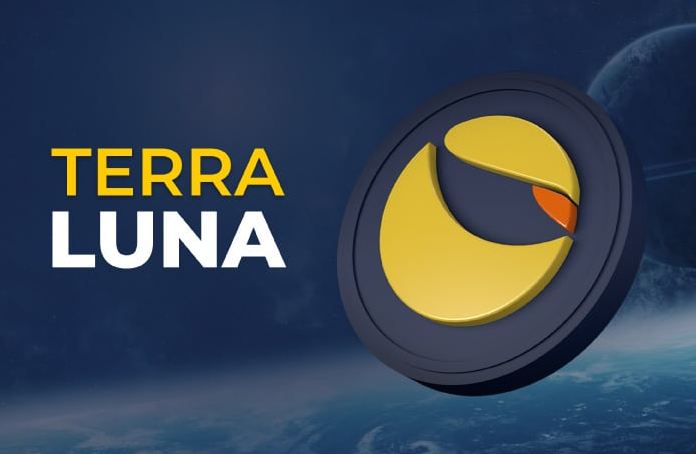Ethereum is making a splash in both the crypto world and the finance world, as it remains the second most popular cryptocurrency in the world. New and experienced traders alike are participating in the volatile action – have you explored it?
Perhaps you need to learn more and further investigate the question, “What is Ethereum and how does it work?”.
What is Ethereum?
While certainly the whole world has heard of Bitcoin at this point, the original and leading cryptocurrency, Ethereum has remained a close second as a rival.
From the dark underworld of mysterious people behind their laptops, to a widespread global phenomenon involving big banks, both cryptocurrencies and Ethereum have come a long way.
As we’ll go into detail in the next section, there are some major differences between Ethereum and Bitcoin. Change and growth are constant with Ethereum, known as ETH (ticker symbol).
Its official name as a coin is Ether. What is Ether? It is the term used for the Ethereum blockchain platform.
The development of Ethereum , and cryptocurrencies in general , is important because this form of blockchain technology will essentially only change, and therefore improve. Technology can only grow and exist by improving.
Ethereum is known for placing a very high priority on security, while it also serves many purposes other than just a coin in real-world use cases.
The ongoing investigation and implementation into hybrid architecture, which will combine both private and public blocks, is a key component of its ongoing development. This opens doors for various real-life industries to use the technology – technology, healthcare, automotive, to name a few.
What are the uses of Ethereum?
To briefly review additional use cases for Ethereum (ETH), we will discuss the main three areas in detail below:
➡️NFTs :A certain buzzword at the moment, NFT , or non-fungible token, is basically a form of digital token, which can represent ownership of something of value, and which is unique. The most typical example is art. Even real estate is getting tokenized. These tokenized items are carried on the Ethereum blockchain, and can only have one actual user at a time.
➡️ DeFi: Short for ‘decentralised finance’, DeFi is certainly growing in popularityas a topic amongst the financial community. This explains the common question “What is Ethereum?” Well, any financial product or service that uses Ethereum software is considered ‘DeFi’. With DeFi, people are not dealing with a central government, nor are the markets ever truly ‘closed’.
We could have a larger conversation comparing DeFi with traditional financial models, but we’ll save that for another day, and another article. It’s important to consider in relation to the topic, the trading value for ETH, or Ether, has tremendous potential, and its possibilities in the financial world are enormous.
➡️ DAO: Ethereum’s remaining current use case is the option for DAOs, decentralized autonomous communities. It’s basically a member-owned community, a true democracy if you will, that provides a secure way to collaborate with strangers and exchange funds for projects. It’s an open-source, transparent solution for truly global collaboration.
What is Ether?
Ethereum in Hindi is the blockchain ecosystem that allows all of the above activities to take place – and then we have a key component of this decentralized ecosystem, known as Ether.
Ether is the financial asset that underpins everything that works within the Ethereum ecosystem. You may have heard people talk about “Ethereum CFD trading” – in that you actually trade Ether CFDs.
Perhaps you’ve heard of the acronym or ticker symbol, ETH. This digital currency also secures the Ethereum blockchain; anything that is done on the Ethereum blockchain requires an ETH transaction in some connection.
As all cryptocurrencies can also be referred to as ‘internet money’, owning Ethereum’s underlying asset means it is secured by cryptography.
Of course, there is a huge benefit to owning the underlying asset of Ethereum. You actually own it, although with CFDs you do not own it. Holding Ether as an asset is a great option to include in your long-term investment strategy .
It is always recommended that traders use volatility protection settings, as they can help to reduce risk when trading. Traders are also encouraged to learn how to effectively manage risk through risk management, as implementing this within their trading can help greatly in terms of reducing the risks associated with trading .
How can you participate in this exciting world of digital currencies?
Like all cryptocurrencies, Ethereum is very volatile – which carries the responsibility for both risk management and a realistic, often short-term trading strategy. If you are used to trading forex , you will find it quite easy to trade cryptocurrency CFDs.
Remember, if you are not yet comfortable trading CFDs with cryptocurrencies, in general, you have the option of copy trading . Once you have logged into your Dashboard, you can access the copy trading option and browse various portfolios – some of which focus solely on cryptocurrency CFDs.
Frequently Asked Questions
What is Ethereum and how does it work?
Ethereum (ETH) is an open-source platform based on blockchain technology that enables developers to create and release decentralized applications. It is best known for its cryptocurrency, Ether. It also powers applications that are available to anyone who wants to use them – it is the world’s programmable blockchain.
What are the uses of Ethereum?
Additional uses of Ethereum (ETH) are primarily in three areas:
NFT
DeFi
The DAO
What is ETH in simple words?
ETH is the ticker symbol for the Ethereum cryptocurrency.


